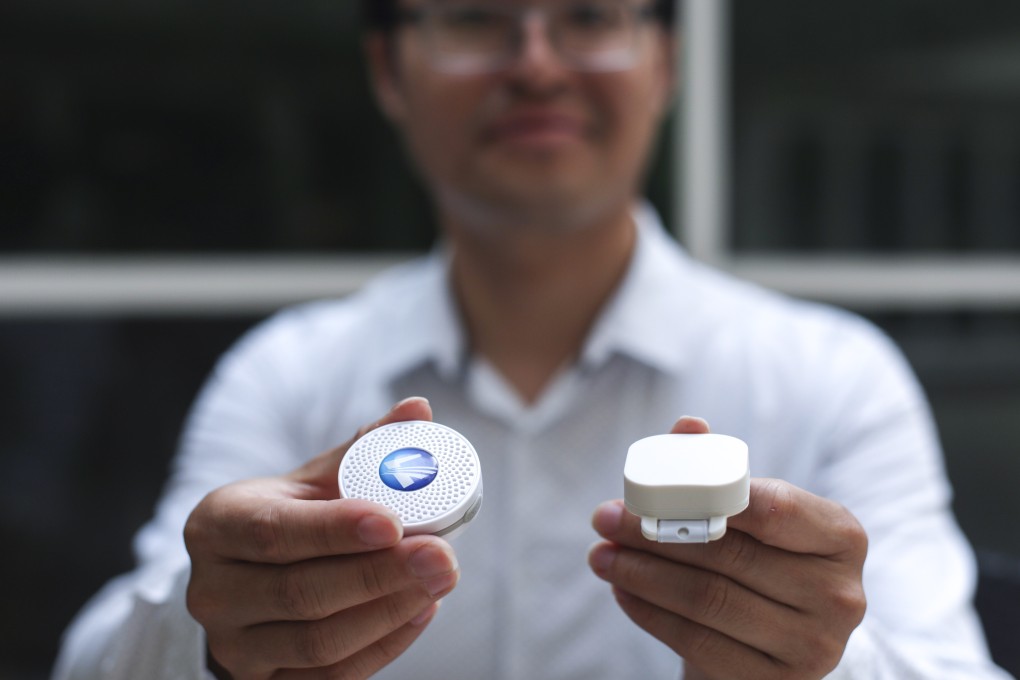How a local start-up used location tracking and geofencing tech developed for retailers to help Hong Kong control the spread of coronavirus
- SagaDigits usually deploys the technology in supermarkets to keep track of popular items and to guide shoppers to their favourite products
- Hong Kong’s electronic wristband project is an important breakthrough for us: CEO

A local start-up was crucial to Hong Kong’s coronavirus response, which has been hailed as “one of the best in the world”.
More than 65,000 people returning to the city had to wear electronic wristbands with location tracking and geofencing technology SagaDigits usually deploys in supermarkets to keep track of popular items and to guide shoppers to their favourite products.
The government paid more than HK$$1 million (US$128,993) for the technology, said co-founder Arthur Chan Chi-chuen, a 41-year-old father of two.
“The electronic wristband project is an important breakthrough for our company,” he said in an interview. “We have since had more overseas companies and governments talk to us over the past two months, about using our technology for quarantine tracking and other purposes. Some companies have also approached us for potential partnerships,” he added.

02:49
Hong Kong’s tough quarantine and travel restrictions
The company, which has 15 staff members, has developed several apps and technologies over the past four years, and recently raised an undisclosed amount from investors during an initial round of funding.